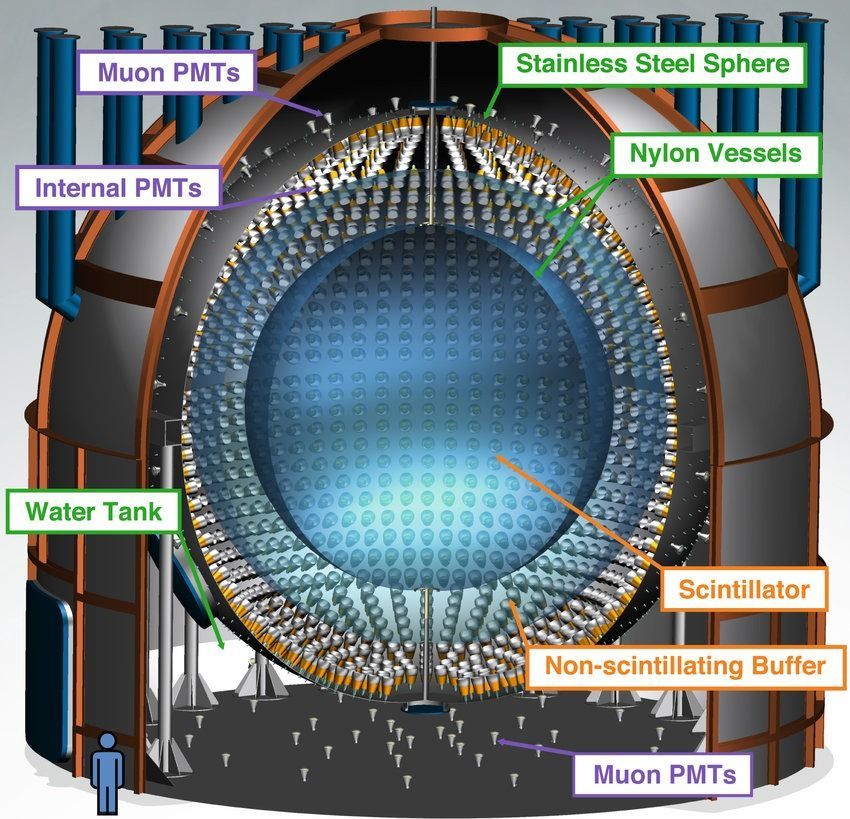A team of researchers working on the Borexino project has announced that they have observed carbon/nitrogen/oxygen (CNO) fusion neutrinos from the sun for the first time. Co-spokesman for the group, Gioacchino Ranucci, a physicist at the University of Milan, announced the observation at this year’s virtual Neutrino 2020 conference.
The Borexino solar-neutrino project is an experiment being conducted underground at Gran Sasso National Laboratories in Italy—it has been in operation since 2007. Its mission is to observe neutrinos that are emitted from the sun via two kinds of fusion reactions. The laboratory is located beneath a kilometer of rock to filter noise. Inside, it houses a huge balloon made of nylon and filled with 278 tonnes of liquid hydrocarbons surrounded by water in a tank. The temperature inside the tank is kept constant by heat exchangers and a blanket cover. Photon sensors line the tank. Neutrinos can be observed when they collide with electrons inside the balloon, creating a tiny flash. The researchers determine the characteristics of the flashes, information that can be used to isolate their source.
Researchers on the project observed neutrinos from a type of fusion reaction called a proton-proton chain back in 2012—they are believed to represent 99 percent of the energy released from the sun. Spotting neutrinos produced during CNO reactions has presented more of a challenge because there are far fewer of them. In both cases, hydrogen is fused into helium. The elements that are part of the reaction are referred to as chains because they allow such reactions to proceed. In his presentation, Ranucci, claimed that the team had “…unraveled the two processes powering the sun.”









Comments are closed.